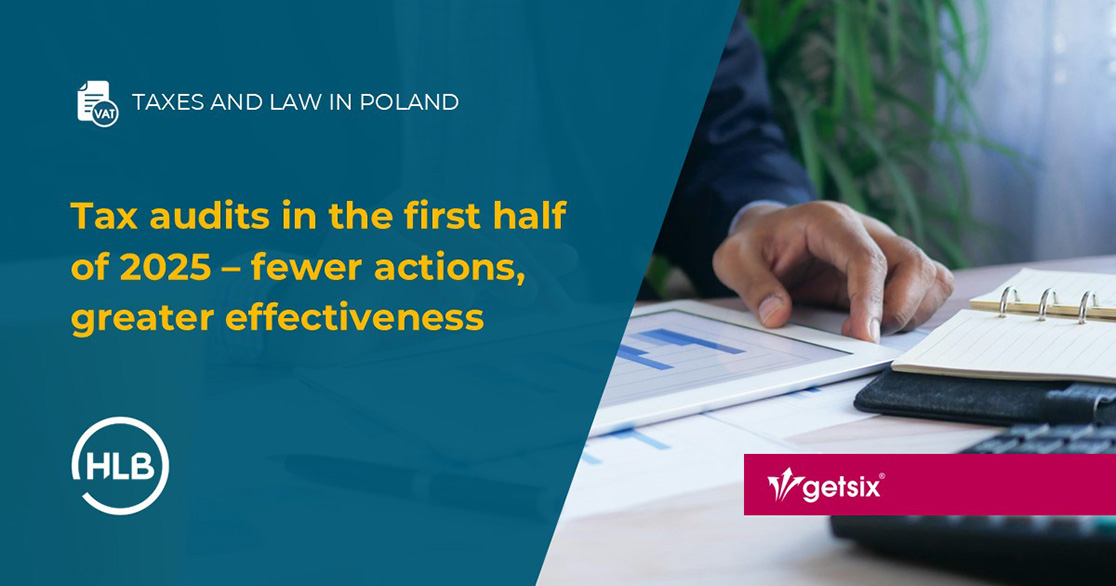Tax audits in the first half of 2025 – fewer actions, greater effectiveness
2 October 2025
2 October 2025

According to data from the Ministry of Finance, 4,271 tax audits were initiated in the first half of 2025, which represents a decrease of 16.4% compared to the same period in 2024, when there were 5,108 audits. At the same time, 3,979 tax audits were completed, which is 25.6% less than a year earlier.
It is worth noting that this is the next stage of a long-term trend – in 2024, the number of tax audits in Poland was almost half that of 2022. Experts highlight that the reduction in the number of formal audits does not mean less activity on the part of the tax authorities. Verification activities, which are less formalised, faster and more convenient for the administration than a full tax audit, are being used more and more frequently.
Despite the decline in the number of activities carried out, the effectiveness of tax audits is increasing. In the first half of 2025, as many as 99.2% of completed proceedings revealed irregularities. For comparison, a year earlier this percentage was 98.6%, and in 2020 – only 85.8%.
According to Dr Renata Burchart from the University of Warmia and Mazury, this trend is the result of better access to taxpayer information by tax authorities. Key factors include uniform control files (JPK), online cash registers and analytical systems, which enable more accurate selection of entities for tax audits.
Additionally, from 2026, the mandatory National e-Invoice System (KSeF) will be introduced, which will further increase the tax authorities’ verification capabilities.
It is worth noting, however, that despite the high effectiveness in detecting irregularities, the amounts of both detected tax evasion and actual payments to the state budget are decreasing.
Experts point out that many taxpayers disagree with the results of tax audits and attempt to challenge them in appeals or administrative courts. This makes the debt enforcement process increasingly ineffective
According to Dr Piotr Krajewski from the University of Łódź, the high percentage of effective tax audits is not exclusively the result of improved work by the authorities. It may indicate that tax irregularities in Poland are gradually decreasing. As a result, we are seeing a smaller scale of tax evasion, which suggests positive changes in taxpayers’ attitudes towards fulfilling their obligations to the tax authorities.
Data from the Ministry of Finance clearly shows that tax audits in the first half of 2025 are less frequent but increasingly effective. The tax administration is focusing on the precise selection of entities and the use of modern analytical tools, which translates into a higher percentage of positive results. At the same time, the effective enforcement of established liabilities remains a challenge, requiring the streamlining of procedures and the shortening of appeal proceedings.
In order to protect your company’s interests, it is worth analysing potential areas of risk in advance and seeking professional support from tax law specialists. Experienced tax advisers can not only minimise the effects of any irregularities, but also ensure tax security at every stage of your business. We invite you to take advantage of the tax advisory services provided by getsix® experts.
If you have any further questions or require additional information, please contact your business relationship person or use the enquiry form on the HLB Poland website.
***
Download the brochures providing general information and outlining the services that are offered by HLB member firms.
Learn moreClick below for more detailed information regarding population, major towns and cities, language, religion and holidays in Poland.
Learn more